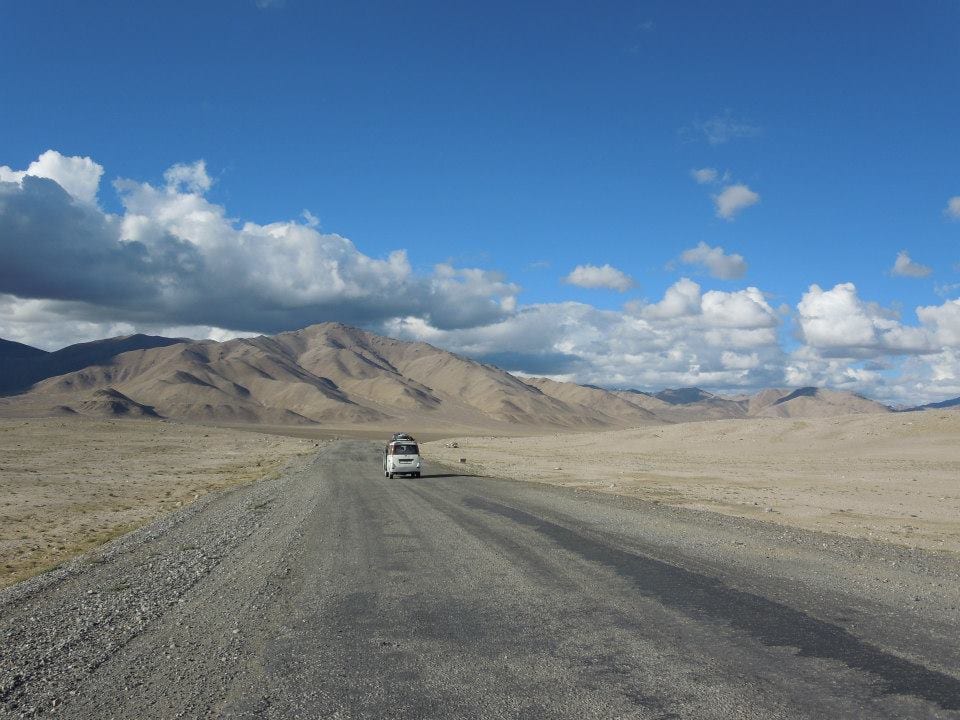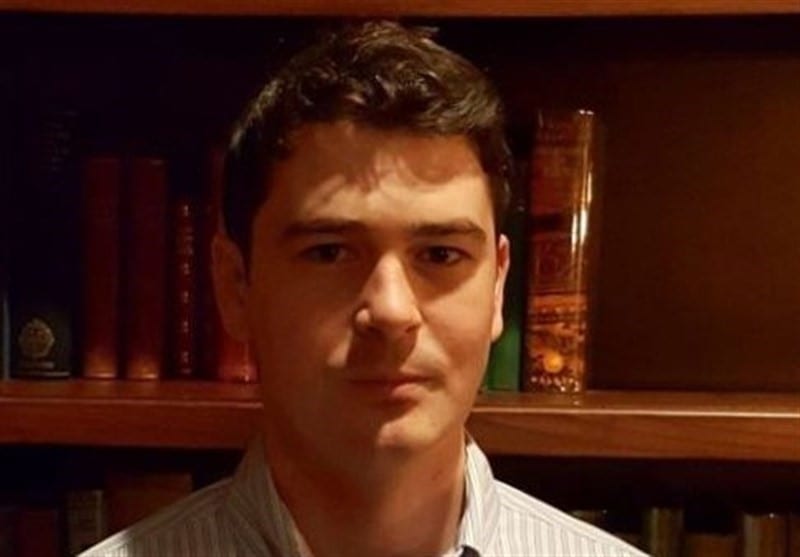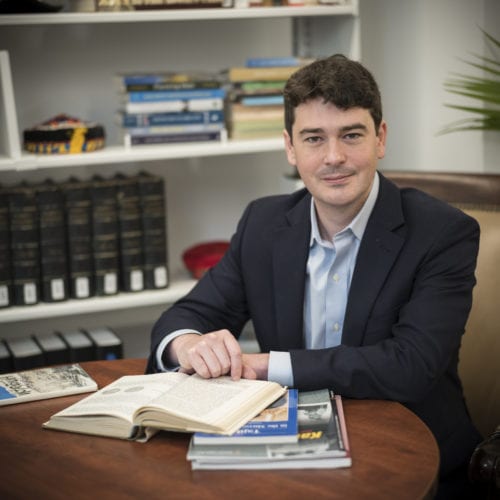Edward Lemon, PH.D.
Kennan Institute FellowDr. Edward Lemon is the DMGS-Kennan Institute Fellow at the Daniel Morgan Graduate School. He is an expert on Central Asian affairs.
Dr. Lemon has briefed a range of international organizations and government agencies on security issues in Central Asia. His comments and interviews regularly appear in the international media. His research has been published in Central Asian Survey, The RUSI Journal, Caucasus Survey, Central Asian Affairs, Foreign Affairs, and The Review of Middle Eastern Studies.
In his research, he examines authoritarian governance, religion, security, and migration in Eurasia. Dr. Lemon is currently writing a book on transnational repression and counter-extremism in Tajikistan.
Ensuring that his insights have been gathered from first -hand experience, Dr. Lemon has spent almost three years working and conducting fieldwork in Tajikistan, Kyrgyzstan, Kazakhstan, Russia, and Poland.
Between September 2016 and August 2018, he was a Mellon Postdoctoral Teaching Fellow at the Harriman Institute at Columbia University.
He gained his Ph.D. in international studies from the University of Exeter in the United Kingdom in 2016.
VIDEO Coming Soon!
RECENT
MEDIA





Nov 2019, IS claims deadly Tajik attack as doubts swirl
Recent attack on a border post in Tajikistan in which over 20 were killed, mostly the militants themselves, which was claimed by Islamic State.
On May 31st, DMGS – Kennan Institute Fellow, Dr. Edward Lemon discussed the use and abuse of Interpol and the Shanghai Cooperation Organization by autocratic regimes. Dictators use these organizations as instruments of repression against political opponents. He provided details of this behavior by China, Kazakhstan, Kyrgyzstan, Russia, Uzbekistan and made mention of Turkey.
Apr 2019 ~ https://www.wsj.com/articles/u-s-broadcaster-under-scrutiny-for-disseminating-propaganda-11556184602
DMGS-Kennan Institute Fellow Edward Lemon was quoted in an article in the Wall Street Journal entitled “U.S. Broadcaster Under Scrutiny for Disseminating Autocratic Propaganda.” The article examines how Radio Free Europe/Radio Liberty’s Tajikistan service, originally established to promote democratic values abroad, has been reporting in favor of the country’s authoritarian regime which has held power since 1992.
Mar 2019 Central Asia Program at George Washington University
DMGS-Kennan Institute Fellow Edward Lemon presented a paper entitled “Countering Extremism in Central Asia After the Caliphate” at the annual Central Asian Security Workshop hosted by the Central Asia Program at George Washington University in Washington D.C. Dr. Lemon explored the what he terms the “paradox of terrorism” in Central Asia, by which citizens have swelled the ranks of terrorist groups in Syria, Iraq and Afghanistan, conducting attacks in Istanbul, Stockholm and New York, yet the region itself has experienced relatively few attacks. Dr. lemon explored how, as Islamic State loses the last of its territory in Syria, the violent extremist threat may evolve in the region. Dr. Lemon explored three scenarios, including ex-fighters moving to seek asylum in Europe, moving to Afghanistan and new recruits conducting attacks within Central Asia.
The Central Asia Program (CAP) at George Washington University promotes high-quality academic research on contemporary Central Asia, and serves as an interface for the policy, academic, diplomatic, and business communities. The Central Asia Program focuses on the wider Central Asian space, which includes the five post-Soviet Central Asian states (Kazakhstan, Kyrgyzstan, Tajikistan, Turkmenistan, and Uzbekistan), Afghanistan, Azerbaijan, Xinjiang, Mongolia, as well as the Volga-Ural region, Kashmir, and Balochistan.
Mar 20, 2019 Wilson Center.org / nazarbayev-resigned-and-what-happens-next
On March 20th, the Russia File, the Wilson Center’s blog focused on post-Soviet Eurasia, published a piece by DMGS-Kennan Institute Fellow Edward Lemon entitled “Why Nazarbayev Resigned and What Happens Next.” The post explores why the president of Kazakhstan Nursultan Nazarbayev, who had ruled his country since 1989, decided to retire on March 19th. The unprecedented move comes at a time of slowing economic growth and rising, yet sporadic, popular unrest, Dr. Lemon argues. Various constitutional amendments mean that, despite stepping down, Nazarbayev will retain his influence in the resource-rich Central Asian country. He will oversee the process of transition to his successor. Potential successors to the country’s first president include various members of his family, the current acting president and the head of the security services.
Back in 2011, I met Mahmadali, a 38-year-old truck driver, on the outskirts of Dushanbe. He sported a clean-shaven face. Shortly after returning from Russia to his dingy Soviet-era apartment in Tajikistan’s capital city a few days earlier, Mahmadali had been stopped by police, taken to the local station, accused of being a “Wahhabi” (read: extremist) and threatened with repercussions if he did not shave off his beard. He duly went to the barber the next day. At that time, these were some of the first reports of such behaviour by Tajik police in the name of countering extremism.
Aug 5, 2018 Ryadh Has Cajoled Dushanbe into Breaking Ties with Iran (Tasnim News Agency)
“Saudi Arabia has benefited from and encouraged Tajikistan to break relations with Iran. Tensions emerged after Kabiri went to Tehran shortly after the IRPT was declared a terrorist organization in 2015. And Saudi has stoked the tensions, boasting that it had “kicked” Iran out of Tajikistan. Whether or not they are behind it, the Saudis will certainly be pleased that the Tajik government blamed Iran, in part, for the attack,” Edward Lemon.
RECENT
MEDIA

Back in 2011, I met Mahmadali, a 38-year-old truck driver, on the outskirts of Dushanbe. He sported a clean-shaven face. Shortly after returning from Russia to his dingy Soviet-era apartment in Tajikistan’s capital city a few days earlier, Mahmadali had been stopped by police, taken to the local station, accused of being a “Wahhabi” (read: extremist) and threatened with repercussions if he did not shave off his beard. He duly went to the barber the next day. At that time, these were some of the first reports of such behaviour by Tajik police in the name of countering extremism.

Aug 5, 2018 Ryadh Has Cajoled Dushanbe into Breaking Ties with Iran (Tasnim News Agency)
“Saudi Arabia has benefited from and encouraged Tajikistan to break relations with Iran. Tensions emerged after Kabiri went to Tehran shortly after the IRPT was declared a terrorist organization in 2015. And Saudi has stoked the tensions, boasting that it had “kicked” Iran out of Tajikistan. Whether or not they are behind it, the Saudis will certainly be pleased that the Tajik government blamed Iran, in part, for the attack,” Edward Lemon.
Highlights of Past Media Releases and Appearances
Nov 14, 2019 The Migration Policy Institute published article on Migration in Tajikistan by Edward Lemon
June 26, 2019 Returning families from Syria and Iraq to Central Asia
June 24, 2019 The Regional Implications of Instability in Tajikistan
December 6th, 2018 Extremism Trends in Tajikistan, European Eye on Radicalization
December 3rd, 2018 The Scourge of the Red Notice, Foreign Policy
November 11th, 2018 What Caused The Khujand Prison Violence?, Radio Free Europe
November 3rd, 2018, Terrorism in Tajikistan (TV Interview), Nieuwsuur
November 1st, 2018 Thinking Towards Transition in Tajikistan, Kennan Institute
October 26th, 2018 US Commerce Secretary Praises Uzbekistan’s Progress, The Diplomat
October 25th, 2018 As Uzbekistan Opens Up, the Goal Is Economic Modernization, not Liberalization, World Politics Review
September 27th, 2018 Assessing the Terrorist Threat in and from Central Asia, George Washington University
August 2, 2018 The jihadists bringing death to Central Asia, The Times
June 5, 2018 When the Country is a Business, OCCRP,
April 11,2018 Nations in Transit 2018: Tajikistan, Freedom House
March 19, 2018 Interpol Abused to Pursue Critics Abroad, Ahval,
March 12, 2018 The Transformation of the Uzbek-Tajik Relationship, Jamestown Foundation
Feb 21, 2018 Critical approaches to security in Central Asia: an introduction (Central Asian Survey)
November 2, 2017 Where was the New York Terror Suspect Radicalized? New York Times
Jun 30, 2017 Counter-extremism, power and authoritarian governance in Tajikistan (Central Asian Survey)
Jan 14, 2016 Putin’s Ploys in Central Asia and His Weakening Influence in the Region (Foreign Affairs)


